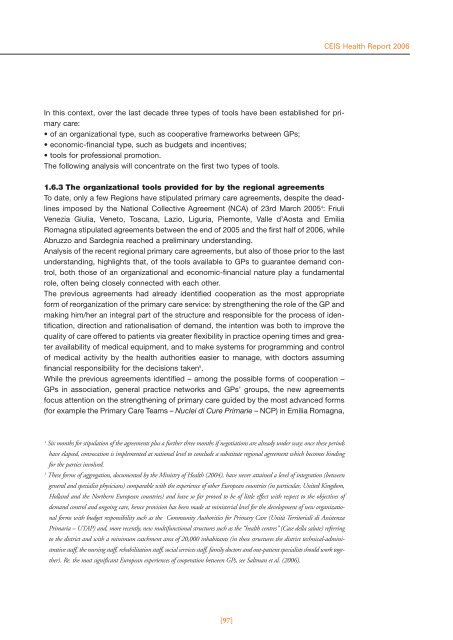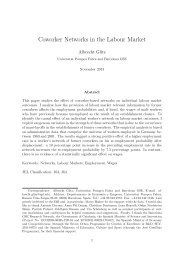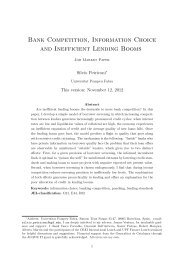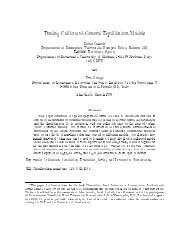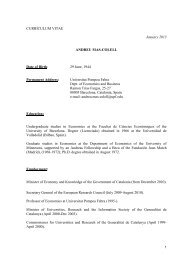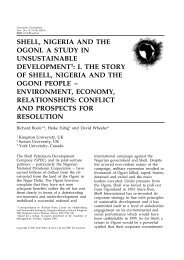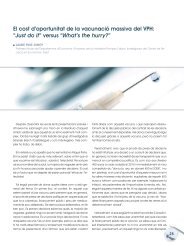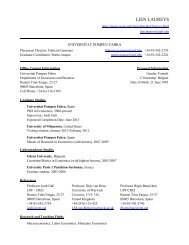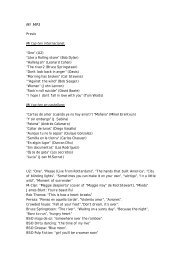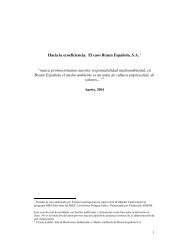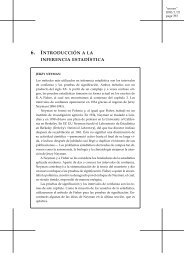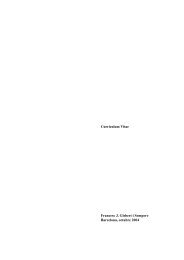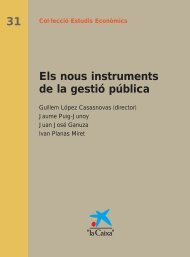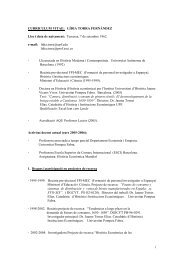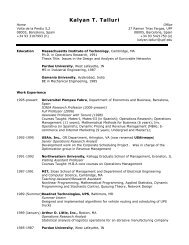Chapter 2
Chapter 2
Chapter 2
You also want an ePaper? Increase the reach of your titles
YUMPU automatically turns print PDFs into web optimized ePapers that Google loves.
In this context, over the last decade three types of tools have been established for primary<br />
care:<br />
• of an organizational type, such as cooperative frameworks between GPs;<br />
• economic-financial type, such as budgets and incentives;<br />
• tools for professional promotion.<br />
The following analysis will concentrate on the first two types of tools.<br />
1.6.3 The organizational tools provided for by the regional agreements<br />
To date, only a few Regions have stipulated primary care agreements, despite the deadlines<br />
imposed by the National Collective Agreement (NCA) of 23rd March 2005 4 : Friuli<br />
Venezia Giulia, Veneto, Toscana, Lazio, Liguria, Piemonte, Valle d’Aosta and Emilia<br />
Romagna stipulated agreements between the end of 2005 and the first half of 2006, while<br />
Abruzzo and Sardegnia reached a preliminary understanding.<br />
Analysis of the recent regional primary care agreements, but also of those prior to the last<br />
understanding, highlights that, of the tools available to GPs to guarantee demand control,<br />
both those of an organizational and economic-financial nature play a fundamental<br />
role, often being closely connected with each other.<br />
The previous agreements had already identified cooperation as the most appropriate<br />
form of reorganization of the primary care service: by strengthening the role of the GP and<br />
making him/her an integral part of the structure and responsible for the process of identification,<br />
direction and rationalisation of demand, the intention was both to improve the<br />
quality of care offered to patients via greater flexibility in practice opening times and greater<br />
availability of medical equipment, and to make systems for programming and control<br />
of medical activity by the health authorities easier to manage, with doctors assuming<br />
financial responsibility for the decisions taken 5 .<br />
While the previous agreements identified – among the possible forms of cooperation –<br />
GPs in association, general practice networks and GPs’ groups, the new agreements<br />
focus attention on the strengthening of primary care guided by the most advanced forms<br />
(for example the Primary Care Teams – Nuclei di Cure Primarie – NCP) in Emilia Romagna,<br />
4 Six months for stipulation of the agreements plus a further three months if negotiations are already under way; once these periods<br />
have elapsed, convocation is implemented at national level to conclude a substitute regional agreement which becomes binding<br />
for the parties involved.<br />
5 These forms of aggregation, documented by the Ministry of Health (2004), have never attained a level of integration (between<br />
general and specialist physicians) comparable with the experience of other European countries (in particular, United Kingdom,<br />
Holland and the Northern European countries) and have so far proved to be of little effect with respect to the objectives of<br />
demand control and ongoing care, hence provision has been made at ministerial level for the development of new organizational<br />
forms with budget responsibility such as the Community Authorities for Primary Care (Unità Territoriali di Assistenza<br />
Primaria – UTAP) and, more recently, new multifunctional structures such as the “health centres” (Case della salute) referring<br />
to the district and with a minimum catchment area of 20,000 inhabitants (in these structures the district technical-administrative<br />
staff, the nursing staff, rehabilitation staff, social services staff, family doctors and out-patient specialists should work together).<br />
Re. the most significant European experiences of cooperation between GPs, see Saltman et al. (2006).<br />
[97]<br />
CEIS Health Report 2006


